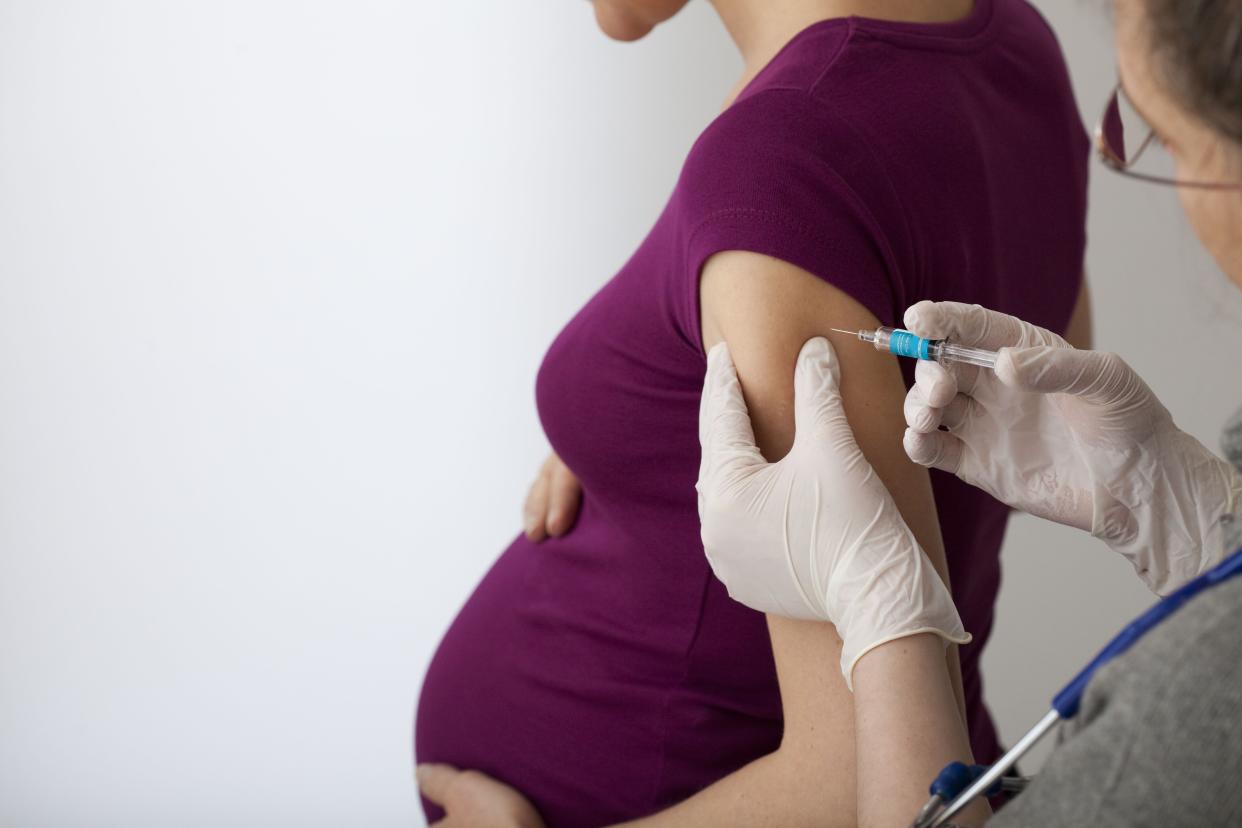Most Pregnant Women Are Not Getting Vaccinated & That's a Major Problem

BSIP/Getty Images
Whether your little one is due for their MMR or it's flu season, there are a variety of ages and stages at which immunizations are necessary. In a new Vital Signs report, Centers for Disease Control and Prevention (CDC) concludes that not enough expectant moms are getting two safe and effective vaccines recommended during pregnancy to reduce the risks of influenza (flu) and whooping cough (pertussis) and protect their infants and themselves. Specifically, they found that 65 percent of pregnant women in the U.S. have not received both influenza (flu) and whooping cough vaccines.
Here's what pregnant women need to know.
What the CDC's Research Found
CDC surveyed nearly 2,100 women ages 18 to 49 who were pregnant any time between August 2018 and April 2019. Their key findings:
54 percent of pregnant women reported getting a flu vaccine before or during pregnancy.
55 percent of women reported receiving Tdap during pregnancy.
Women whose health care providers offered or referred them for vaccination had the highest vaccination rates.
Black, non-Hispanic women had lower vaccination rates than women of other races and were less likely to report a health care provider offer or referral for vaccination.
Why It's So Important to Get Flu and Pertussis Shots During Pregnancy
For Babies: The CDC notes that the flu and whooping cough can be deadly, especially for newborns. And 69 percent of reported whooping cough deaths occur in babies less than two months old, and babies less than six months old are at the highest risk of all children for hospitalization from influenza. But getting the immunizations for both during pregnancy can go far to guard against the illnesses. That's because pregnant women who get vaccinated develop antibodies that are then passed on to their baby, protecting the infant in the first few months of life before they can get their own vaccines.
Flu shot efficacy: Flu vaccination in pregnant women reduces the risk of hospitalization due to influenza in their infants younger than 6 months old by an average of 72 percent.
Tdap vaccine efficacy: The immunization for whooping cough in pregnant women will guard against more than three in four cases (78 percent) of whooping cough in babies under two months old.
For Moms: The flu shot is also crucial for a pregnant woman's health, given that expectant moms are more than twice as likely to be hospitalized if they come down with the flu. Since 2010, among women ages 15 to 44 years who were hospitalized for influenza, 24 to 34 percent of them were pregnant—even though only approximately 9 percent of U.S. women in this age group are pregnant at any given time each year. But the CDC points to a recent study that found getting a flu shot reduces a pregnant woman's risk of being hospitalized due to influenza by an average of 40 percent.
When to Get Your Shots
The CDC recommends that, as part of routine prenatal care, all pregnant women receive flu vaccine at any time during pregnancy, and whooping cough vaccine (Tdap) early in their third trimester of each pregnancy.
The Bottom Line
CDC Director Robert Redfield, M.D. noted in a press release, "I want to reinforce that all expectant mothers should be up-to-date with recommended vaccinations as part of their routine prenatal care." He also encouraged doctors discuss the issue with their pregnant patients, noting, "CDC strongly recommends that health care providers speak with moms-to-be about the benefits of safe Tdap and flu vaccination for their health and the well-being of their babies."

